
California's drug laws encompass many offenses, from simple possession to manufacturing and trafficking. Suppose you are facing criminal charges that involve drugs in any capacity. In that case, it is important to understand your rights, what steps you should take next, and the possible consequences associated with these violations, a DUI conviction related to drugs may have serious repercussions - regardless of whether or not this was your first offense.
At Hurwitz Law Group, we provide comprehensive legal guidance for those charged with drug crimes in California. Our experienced attorneys can help explain state law regarding controlled substances and inform you about the differences between misdemeanors and felonies, plus potential punishments for each type of violation.
We strive to ensure that everyone understands their options when dealing with such sensitive matters so they can make informed decisions about how best to defend themselves going forward.
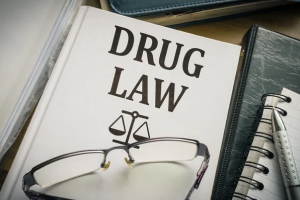
Understanding California drug laws and California health regulations is essential, especially for those facing charges related to drug possession, distribution, or manufacturing. Here are some key laws to know:
Under Health and Safety Code 11350 HS, possessing certain controlled substances without a valid prescription is illegal. This includes drugs such as heroin and cocaine and prescription drugs like oxycodone and hydrocodone.
Violating this law can result in a misdemeanor or a felony charge, depending on the circumstances and the defendant's criminal history.
Health and Safety Code 11357 HS regulates the possession of marijuana in California. While recreational marijuana is legal in California, there are still restrictions on possession amounts and where it can be consumed. Violating this law can result in fines or, in some cases, misdemeanor charges.
Health and Safety Code 11377 HS makes it illegal to possess certain controlled substances classified as Schedule III, IV, or V, such as methamphetamine, ketamine, or anabolic steroids, without a valid prescription. As with Health and Safety Code 11350 HS, violations of this law can be charged as either misdemeanors or felonies, depending on the circumstances and the defendant's criminal history.
As someone with less legal experience, it's important to understand the complexities of health codes and regulations. To protect your rights and interests properly, consult a lawyer specialized in this field for guidance.
In California, certain drugs are legally accessible for medical or recreational use - such as medical marijuana (for those 21+) and prescriptions from licensed healthcare professionals. But even if these substances are permitted under the law, mishandling them can still lead to criminal charges – so be aware of what you’re using and how it could affect you if consumed incorrectly.
Don't hesitate to ask questions or concerns. Get educated on the subject matter to protect yourself accordingly!
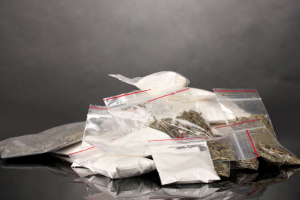
While laws have changed recently, many drugs are illegal in California, including but not limited to the following:
Possession, distribution, or manufacturing of these drugs can result in criminal charges, with penalties varying depending on the specific drug and the defendant's criminal history.
In California, drug possession can be considered a misdemeanor in several situations, including:
Misdemeanor charges typically carry less severe penalties than felony charges, including shorter jail sentences, lower fines, and less severe long-term consequences.
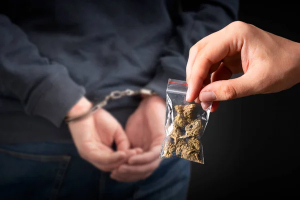
Drug possession can be considered a felony under certain circumstances, such as:
Felony charges typically carry more severe penalties than misdemeanor charges, including lengthier prison sentences, higher fines, and more significant long-term consequences.
The specific amount of drugs that can lead to a felony charge varies depending on the type of drug and the circumstances surrounding the case. Factors such as the drug's weight or quantity, the defendant's criminal history, and evidence of intent to sell or distribute can all influence whether a possession charge is classified as a felony.
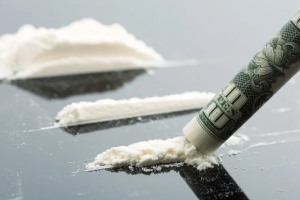
In California, possession of a controlled substance refers to having control over illegal drugs, such as heroin, cocaine, methamphetamine, or other substances listed in the California Uniform Controlled Substances Act.
Possession can be actual, meaning the drugs are physically on the person, or constructive, meaning the drugs are in a location that the person controls, such as their home or vehicle.
Controlled substances in California are classified into five schedules based on their potential for abuse, medical use, and safety:
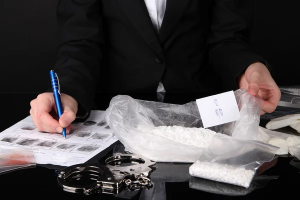
California's historic Proposition 47, passed in 2014, reclassifies non-violent drug and property offenses from felonies to misdemeanors. This means those convicted of drug possession can receive reduced sentences, while individuals with felony convictions could have them retroactively lowered to the less serious charge.
As a result, this enormously impacts their lives and future prospects – leading to greater opportunities.
The amount of jail time for drug possession varies based on numerous factors: the type of substance involved; how much was held at the time; any prior criminal history, and whether it is classified as a misdemeanor or felony offense. Those found guilty of misdemeanor charges face up to one year in county jail, whereas felonies may lead to several years imprisonment within state prison walls.

Penalties for possessing controlled substances other than marijuana in California can vary depending on the type of drug, the quantity, and the defendant's criminal history. Generally, these penalties can include:
Penalties for possessing marijuana in California depend on the amount and the defendant's age. Generally, these penalties can include:
Possessing concentrated cannabis, also known as hashish or marijuana concentrates, carries different penalties in California. These penalties can include the following:
If you or a loved one has been charged with drug possession, don't panic - several strategies are available that could potentially lead to the charges being dropped or reduced.
To ensure the best possible outcome for your case, make sure to enlist the help of an experienced criminal defense attorney who will evaluate your specific circumstances and determine which course of action will be most effective in fighting for your rights.
Here are some steps worth exploring:

At Hurwitz Law Group, our skilled California DUI lawyers understand how daunting these charges can be. We are here to offer support every step along the way, so together we can fight towards finding success against pressing matters like drug possession cases!
Search
Categories